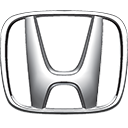

- expert assessment from our trained technicians
- advice on estimated remaining life of your tyres
- Winter Tyres
- Summer Tyres
- All Season Tyres



 Tyre Pressure levels are crucial to both the longevity of your tyres and your personal safety. Incorrect tyre pressure can subject your vehicle to increased braking distances and less grip on the road. The chances of damaging your wheels are also increased if the tyre pressure is incorrect.
Tyre Pressure levels are crucial to both the longevity of your tyres and your personal safety. Incorrect tyre pressure can subject your vehicle to increased braking distances and less grip on the road. The chances of damaging your wheels are also increased if the tyre pressure is incorrect.
Customer Reviews
Fabulous service with competence and efficiency, great lads, great value for money, would highly recommend... Read More
Jess Bytheway
On my 6th car and neumerous motorcycle purchases from one of the best family run businesses around. Service is both friendly and second to none. Highl... Read More
Colin Toogood
Paid for my daughter Nix to have an upgrade and the staff were just brilliant and at the right price for me. After 6 months the little fiesta is going... Read More
Neil Davies
Bob evason ,just purchased my first car from watsons ,very friendly and helpful staff,car was exactly as described in the listing ,the presentation of... Read More
Liz Evason
I didn't realise there were businesses still out there that give 5 star customer service. My mum bought a fab Toyota Yaris last week and has been trea... Read More
Claire Lambert-Smith
Two of my daughters and one fiancé recently bought cars from Watsons. My husband and I also have had cars from them and regularly have all our cars s... Read More
Sally Robertson
I unreservedly and wholeheartedly recommend this wonderful family business to you! When I found myself unexpectedly stranded without transport over th... Read More
Eileen Coleburn
Bought my 57 plate c max from there today 42000 mile on clock 6 months warranty and 12 month break down cover really happy with the car and great serv... Read More
Darren Williamson
Trying to find a genuine , friendly and helpful car sales company these days is a nightmare unless you come to these guys ! I honestly have to say tha... Read More
Laurence Harvey
Excellent, friendly service from David. No pressure, honest approach and a very fair price. Delighted with my new car and would happily recommend this... Read More
Ashley Smith
If, like me, you want trustworthy, hassle-free, no-pressure service this is the place to go to. Watsons work with you to find great value cars that ar... Read More
Phil Weaver
Always happy to help me with any concerns I may have regards my car. Polite staff.... Read More
Deborah Ratcliffe
Bought my 57 plate c max from there today 42000 mile on clock 6 months warranty and 12 month break down cover really happy with the car and great serv... Read More
Darren Williamson
Great garage brilliant customer service you can actually speak to someone that knows about cars not just a receptionist just the job breath of fresh a... Read More
Martin C
Having been involved in an accident I needed to organise a new car so I could resume work and get back to normal life as soon as possible. It just so... Read More
Chris Foster
Contact Details
4 Etnam StreetLeominster
Herefordshire
HR6 8AQ 01568 612060 sales@watsonsmotorworks.co.uk

 Used BMW
Used BMW Used FORD
Used FORD Used HONDA
Used HONDA Used KAWASAKI
Used KAWASAKI Used KTM
Used KTM Used MINI
Used MINI Used MOTO GUZZI
Used MOTO GUZZI Used NORTON
Used NORTON Used TOYOTA
Used TOYOTA Used VELOCETTE
Used VELOCETTE




